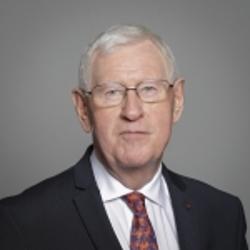Children: Speech and Language Disorders
(asked on 12th September 2024) - View SourceQuestion to the Department for Education:
To ask His Majesty's Government how many children have completed language intervention programmes each year since such programmes were first funded by the Government in 2021.
The department works with the Education Endowment Foundation (EEF) to support building the evidence base for early language interventions. In July 2024, the department announced that funded support for the 11,100 schools registered for the Nuffield Early Language Intervention (NELI) programme (two thirds of English state primary schools) would continue for the 2024/25 academic year. NELI is the most robustly evidenced early language programme in the UK, helping children who need extra support with their speech and language development to make four months of additional progress and seven months for those on free school meals.
To support early language skills, the department has invested over £20 million in NELI. The department does not hold the exact number of children who have completed NELI since 2020, but an estimate is based on the data included in EEF’s 'NELI Scale-up: Evaluation Report - Year 2', as attached. The programme has screened more than 650,000 children in the last four years and supported more than 210,000 four and five-year-olds since the pandemic. Broken down by academic year, this is:
2020/21: 35,000
2021/22: 59,000
2022/23: 58,000
2023/24: 59,000
The Stronger Practice Hubs, which provide advice, share good practice and offer evidence-based professional development for early years practitioners, have also collaborated with the EEF to fund and make places available on several early language programmes. This is helping to strengthen and add to the evidence base of early years professional development programmes. The department does not hold data on the number of children who have benefitted from these programmes.
The number of new schools who registered to deliver NELI in each academic year since 2020 are as follows:
2020/21: 6,668
2021/22: 4,418
2022/23: 26
2023/24: no new school registration undertaken
For registered schools, the government has continued to fund the intervention so that schools can deliver the programme to new cohorts of reception children, where they are identified with below or well-below average language levels. We do not hold figures on how many of these schools completed the full work programme in each of those years.

